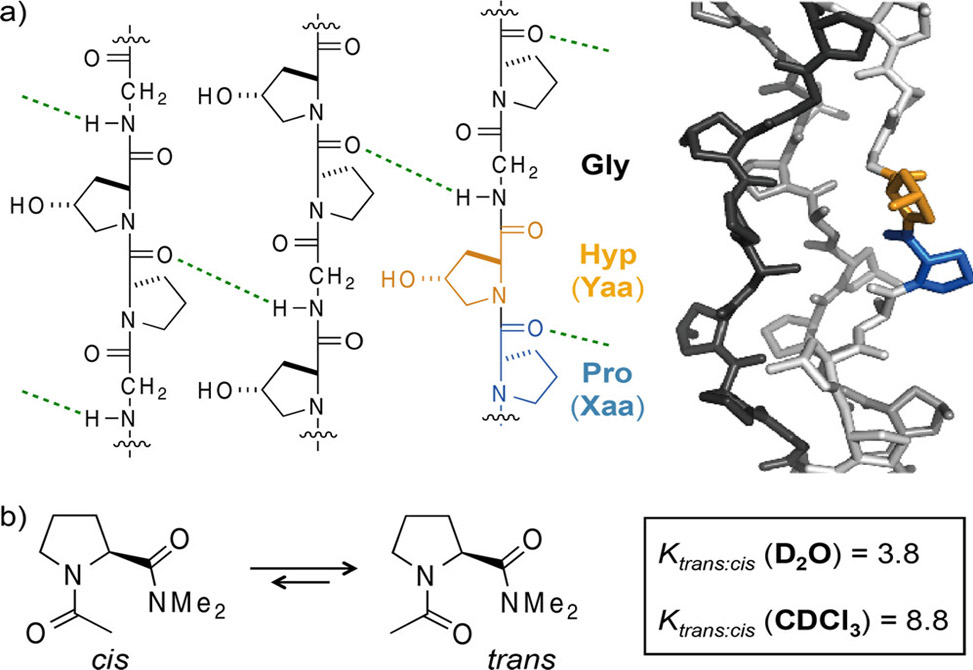APS Research & News
Hydrophobic Moieties
This article reflects work in the Wennemers Lab
Trans amide bonds and fast cis–trans isomerization of Xaa-Pro bonds are crucial for the stability and folding rate of collagen, the most abundant protein in mammals.
In work published in JACS, researchers in the Wennemers Group explored the effect of pendant hydrophobic moieties on the folding and stability of collagen triple helices. Kinetic studies with a series of collagen model peptides showed that a local hydrophobic environment accelerates cis–trans isomerization to an extent that thermally induced unfolding and folding of the collagen triple helix take place at the same speed.
Thermal denaturation studies revealed that the hydrophobic appendages provide hyperstable collagen triple helices, Tm = 70 °C.

Published here on Sept. 7, 2019
Title: Hydrophobic Moieties Bestow Fast-Folding and Hyperstability on Collagen Triple Helices
Authors: Jasmine Egli, Christiane Siebler, Martin Köhler, Renato Zenobi, Helma Wennemers
Citation: J. Am. Chem. Soc., 2019, 14, 114, 5607-5611